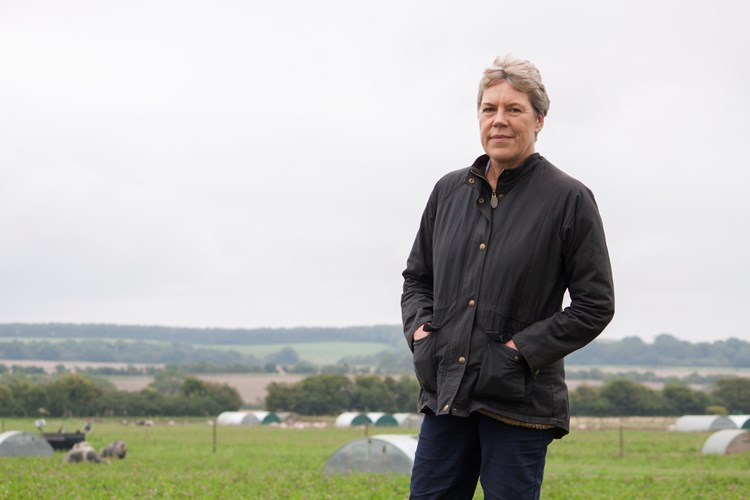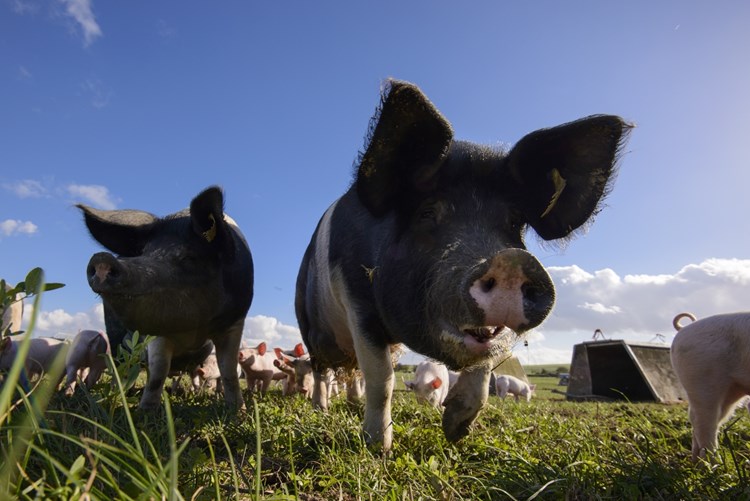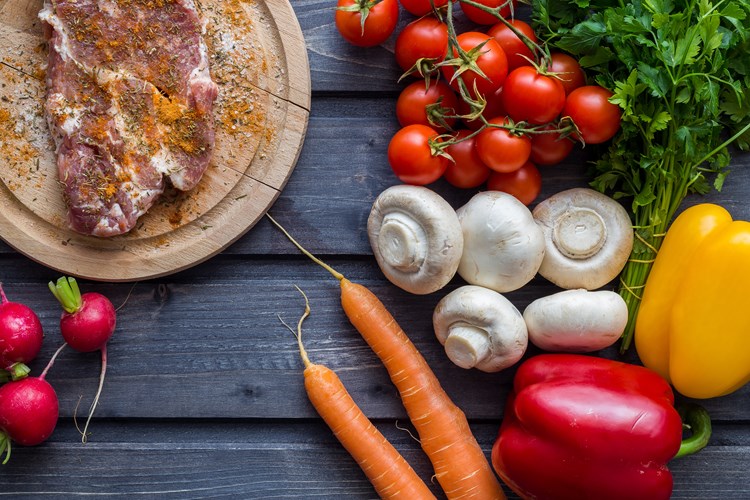Sustainababble: Helen on Farming
At the end of June, David Powell and Oliver Hayes, who run the Sustainababble podcast visited Soil Association chief executive Helen Browning’s farm for the day. They are two really committed environmentalists and their weekly podcast looks at the complex arguments around sustainability and environmental issues. Dave and Olly had decided it was high time to get to grips with farming as an issue and so Helen was asked to explain organic farming and answer the kind of questions that many people ask about organic farming and food.

Diversity is essential to organic farming
We started off with a visit to see the pigs which gave Helen a chance to underline the importance of diversity to organic farming and how that is key to resilience in both farming and food supply. Organic farming is all about embracing complexity and learning to manage it by mimicking nature more on the farm.
Pigging Out
They were clearly impressed by how much fun the piglets were having and enjoyed Helen’s tip that “if you want to know whether a pig is happy or not you just have to look at the curliness of it’s tail.” They touched on pig slaughter and Helen explained that organic pigs are only slaughtered in abattoirs certified by the Soil Association and that all the animals had to be stunned before killing. They finished up on a brighter note with Helen explaining the finer points of training pigs for racing. Although Helen’s latest sporty porkers got rather too boisterous with the bloggers thinking they had some tasty food treats tucked away.

The Future of Farming
The farm tour ended with choosing a sunny field for an interview which majored on the kind of questions on organic that Sustainababble listeners really wanted the answers to. Starting off with a chat about organic farming and why changes were needed to farming systems in this country, Helen explained that as an organic farmer she wanted to farm with nature rather than against it. For the past 70 years, farm practice has relied too heavily on chemicals and fossil fuels so fundamental changes are needed, like much wider adoption of agroforestry. Keeping animals intensively indoors means relying on grain, rather than grazing. Farming needs to reduce waste and use new techniques of farming that mimic nature better. In my view, organic farming is the best approach to feed people in the future and has to be at the forefront of change.
The True Cost of Food
They then tackled the old chestnut of how expensive organic food is. If the impact of some other farming systems on the planet was taken into account, organic farming comes out as the most cost-effective way of farming. The right incentives and disincentives for farmers had to be in place to tip the balance; it could not be left just to the consumer.

Brexit and Farming That led naturally to a discussion on farming post-Brexit and the influence of Michael Gove. In the short term, Brexit had meant wins for farmers in terms of reduced food imports and greater opportunities for UK farmers to export more food. In the longer term, the picture was likely to be more difficult with widespread concerns about cheap imports of low-quality food such as chlorinated chicken and feedlot beef. Since many in the farming and food production workforce also came from the EU it would be difficult to find replacements for those people quickly. Michael Gove had already made some important statements about future payments being used to incentivise farmers to deliver environmental benefits.
We’re all in this together
They ended a fun day by discussing how other farmers regard organic farmers. It was a good point on which to finish. There’s a really positive coming together of organic farmers and conventional farmers. Most farmers now recognise that their soils are running out of steam; chemicals alone are not working. There’s a real sense that we’re all in this together; we’re facing common challenges. There’s more togetherness and understanding of common problems than there ever has been.

